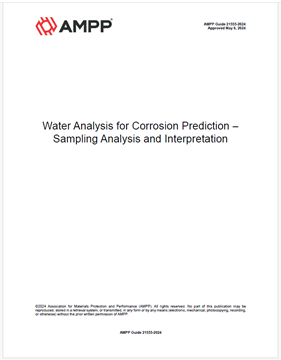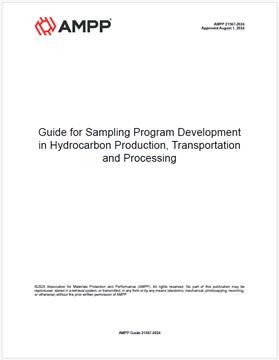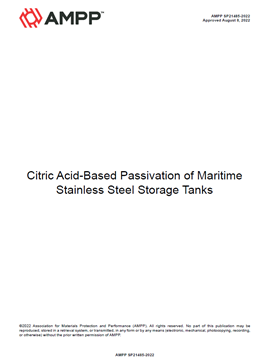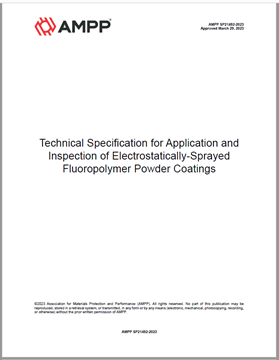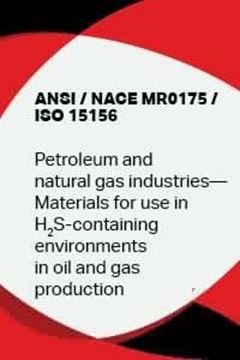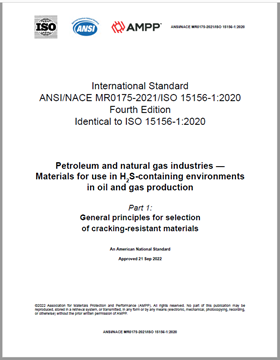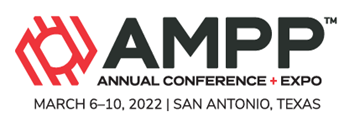Chemicals
AMPP Guide 21555-2024, Water Analysis for Corrosion Prediction - Sampling Analysis and Interpretation
AMPP Guide 21567-2024, Guide for Sampling Program Development in Hydrocarbon Production, Transportation and Processing
AMPP SP21485-2022, Citric Acid-Based Passivation of Maritime Stainless Steel Storage Tanks
AMPP SP21492-2023, Technical Specification for Application and Inspection of Electrostatically-Sprayed Fluoropolymer Powder Coatings
ANSI/NACE MR0175/ISO 15156 Inquiries and Answers, Petroleum and natural gas industries—Materials for use in H2S-containing environments in oil and gas production—Inquiries and Answers
ANSI/NACE MR0175/ISO 15156-2015
ANSI/NACE MR0175-2021/ISO 15156:2020
Basic Corrosion_eCourse_ALL
The Basic Corrosion online course covers a basic but thorough review of causes of corrosion and the methods by which corrosion is identified, monitored, and controlled.
Purchase of this course includes a one-year subscription and is non-refundable. Students will have access to all course materials for a period of one year from the date of registration. All course work must be completed during this time period. Extensions and transfers cannot be granted.
The initial exam fee for the Corrosion Foundations exam is included with the course registration fees. The exam is administered through an online remote proctoring service. Once you have purchased the course, log into your My Certification Portal to schedule the exam.
Please note: You will have 1 year from date of purchase to complete the exam or forfeit your fees.
For further details visit the resources page on our website.

